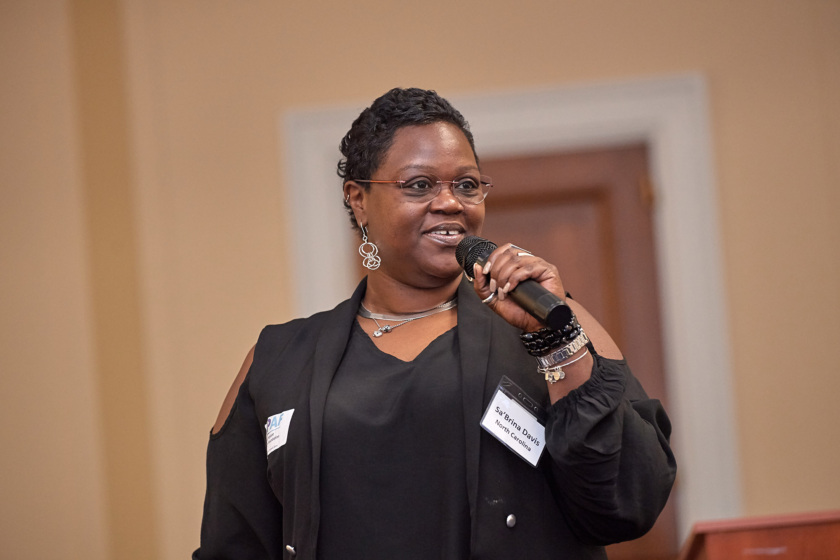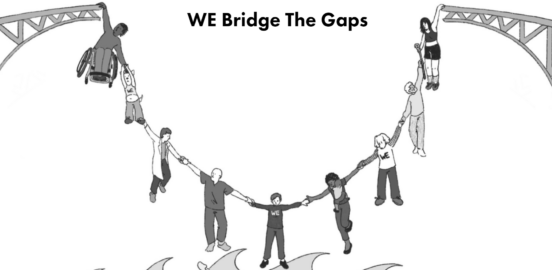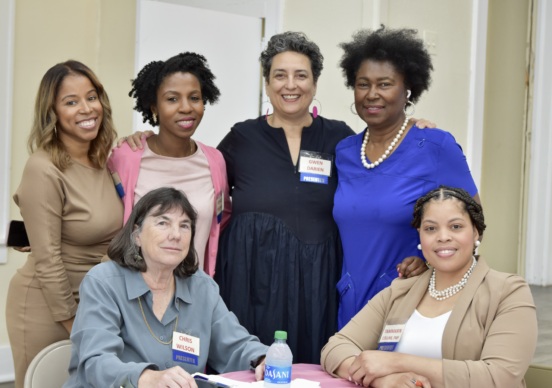Caregiving, Needs Navigation, Storytelling
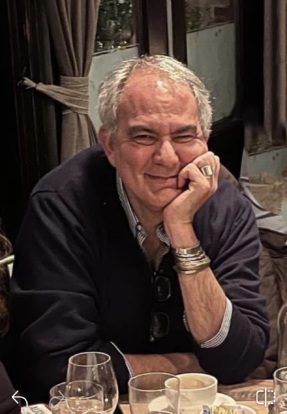
For our February 2023 Volunteer Spotlight, we are recognizing Sa'Brina Davis (pictured center) of Gastonia, NC.
Sa’Brina Davis joined NPAF’s volunteer network over 16 years ago and was honored in 2019 for her exceptional community advocacy with NPAF’s Outstanding Volunteer Award. She’ll be the first to share that she did not know the first thing about patient advocacy when she joined NPAF’s volunteer network, but by keeping an open mind, she’s applied all that she’s learned to advocate for her family and community. Learn more about Sa’Brina’s advocacy below.
My children are what motivated me to start advocating for patients in my community. I just didn’t think it was right that I was required by law to have car insurance and not health insurance. Joining NPAF was one of the first things I did to learn about patient advocacy. So that I can keep learning about different healthcare challenges and experiences, I participate in disease-specific community outreach events. During these events, I meet patients who have overcome hurdles that delayed access to therapy due to insurance coverage limitations, financial obligations, and/or transportation to travel farther than normal to receive care from specialists.
Currently, I am following up with state legislators regarding efforts to expand Medicaid in North Carolina.
I would advise other volunteers to start small and to be targeted: pick one or two patient populations diagnosed with a serious illness or chronic condition, such as cancer or Multiple Sclerosis. Read information about the illness, everything from the tests and lab work required to determine the diagnosis, and most common prescribed therapies and the cost of the therapies. By learning about the condition, you have a foundation to talk with patients about their care. From there, I suggest participating in local outreach engagement activities such as walks to raise awareness about the disease. Participation could include passing out water to walkers or setting up booths prior to the start of the event. During these activities, patients share their stories and often talk about the barriers they experience to access affordable therapies in a timely manner. I am truly inspired by patients who have spent many hours to raise awareness about their experiences and then voyage on a path to ease the burden for future patients. Also, during these community events, I am inspired by the way caregivers and surviving family members show compassion to attending patients who may be experiencing flare-ups or side-effects to treatments.
Since I’ve been a volunteer with NPAF, I’ve gained confidence to speak with clinicians and lawmakers to advocate for both patients and caregivers and raise awareness about healthcare policy changes that may improve patients’ quality of life. With this newfound confidence, I participated in the Palliative Care Measures Project by providing insights from a caregiver’s perspective around palliative care.
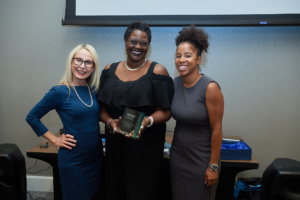
My most memorable moment as a volunteer was receiving the Outstanding Volunteer award in 2019. This award is now given in honor of the late Donna Guinn, and it makes me proud to know she taught me how to plan, organize and execute coalition activities, like hosting a successful state level Advocacy Day.
Before volunteering with NPAF, I did not know about the resources available to patients and caregivers. I knew healthcare policy changes were needed, but I did not know the process to initiate or address the need for healthcare policy change. As an open-minded volunteer, I am proud to learn about how I can advocate for positive healthcare policy change along with fellow advocates.
As February is Black History Month, I reflect on opportunities I am privileged to enjoy without barriers because Civil Rights Activists took action and demanded change. Black patients and healthcare professionals need to be informed patient advocates to change the outcome of health care disparities. We have studies that show how black patients suffer due to a lack of access to equitable care. The issue was identified, now is the time to implement and enforce change by all of us becoming informed patient advocates. This could be as simple as inquiring about alternative treatments due to experiencing unwanted side effects of current prescribed therapies. We have not moved closer to receiving equitable health care by waiting for health care professionals to proactively disclose or offer alternate options of care; therefore, we must speak up for the sake of wellbeing; we must be informed patient advocates.
Black health care professionals can prove to be informed patient advocates by offering patient-centered therapies based on patient’s lifestyle and obligations. Attaining equitable health care will not happen in one month. Over the course of time, if Black patients and health care professionals present a united front as informed patient advocates, we will begin to experience positive changes when receiving care within our health care system.
Caregiving, Needs Navigation, Storytelling
Caregiving, Health Literacy, Needs Navigation, Trust
Caregiving, Storytelling, Trust
Equity, Policy Consortium
